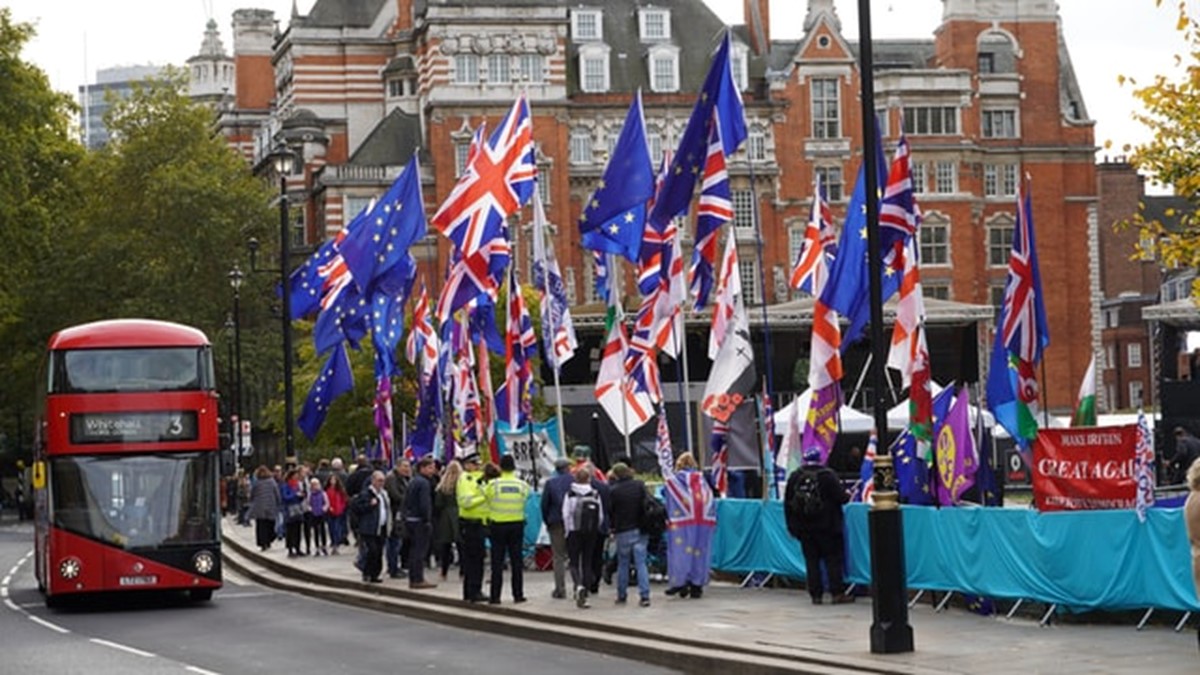Political commentary is full of grand narratives. For the first decade of the 2000s there was a dominant assumption that the Conservative party would struggle to win a majority again. A combination of demographic change and growing social liberalism pointed to a party out of touch with modern Britain.

Fast forward to 2020 and that assumption had been turned on its head. After increasing their vote share for six elections in a row, severing the traditional link between Labour and their northern heartlands and reducing the Lib Dems to single figures, the Conservatives seemed unassailable. Add to that the more efficient spread of Leave voters than Remain voters around the country and a vaccine bounce as recently as last autumn, Tory hegemony seemed guaranteed.
Now at the beginning of 2022, a combination of scandals, cost of living increases, Labour poll leads, and by-election losses mean that those predictions look ever so slightly premature. And that shouldn’t be surprising. The British public aren’t neat data points on a graph conforming to predictable stereotypes.
In fact, polling for More in Common conducted at the end of last year showed that the predictive power of viewing politics through a binary Brexit lens is well on the way to breaking down.
In 2020, polling showed a huge 43 per cent point gap between Leavers and Remainers on trust in the prime minister. Fast forward to the end of last year and that gap had almost halved. When it came to the lobbying scandal, both Leavers and Remainers were equally likely to say that it made them feel like politics was corrupt. And the reason that recent allegations about illicit Christmas parties landed so badly can be best explained by the fact that Leavers and Remainers unite in using the word “honesty” to describe their ideal Britain.
Perhaps most importantly, over the past two years our polling has found a steady decline in Leave voters ranking Brexit as one of the most important issues facing the country – falling from a third in early 2020 to less than one in ten today.
That changing mood was highlighted most starkly to us in a recent focus group in the Red-wall seat of Bolton North East. There, almost without exception, those who had voted Tory for the first time in 2019 told us that they had done so for Brexit, but were just as clear that this vote didn’t mean they had signed up to be permanent Tory voters.
The reason why Brexit hasn’t become a permanent sticking point for the public is best explained by the fact that in the UK we don’t have stacked identities.
In places like the United States, it is usually the case that once you know what someone thinks about one issue – take the Black Lives Matter movement – you can accurately predict what they think on entirely separate issues like climate change, immigration or trans rights. In the UK that’s not the case.
In our conversations with Britons over the past year, we’ve spoken to: people who want to clamp down on immigration, while passionately supporting taking the knee; people who are worried about cancel culture, but also support the National Trust’s approach to retain and explain; and people who want us to move to net zero more quickly, but worry we’re sending too much money overseas.
In fact, far from splitting into two distinct blocks defined by Brexit identity, More in Common’s analysis of Briton’s values and world views has identified seven unique segments of the public — from progressive activists and loyal nationals to civic pragmatists and backbone conservatives. Far from being riven down the middle, these seven segments show instead that Britain is better represented by a kaleidoscope of different segments coming together or diverging depending on the issue at hand.
That’s what makes British politics so interesting and unpredictable – most of the public vote based on what’s happening in their lives and how good a job they think our elected representatives are doing, not as part of a predictable block. And that tendency is why across range of issues, the Leave-Remain divide is healing, from what people value in their politicians to their most-watched TV series of the past year — Line of Duty in case you’re interested.
Looking to the future then. When the next election comes around, driving a wedge through a Brexit binary won’t be a winning strategy any more. Instead, the future success of the Conservative or Labour party in the red wall will depend much more on what happens with the levelling up agenda and whether people feel like their local communities have started to show visible improvement. Across the country, from Blackpool to Buckinghamshire, there is a very real prize for the political party that shows it can tackle people’s disenchantment with our democratic life, prove the system isn’t rigged, that there isn’t one set of rules for politicians and one set of rules for everyone else, and that the government can make people’s lives better.
As North Shropshire so dramatically showed us at the end of last year these are the real issues, rather than how people voted in a referendum almost seven years ago, that will decide the shape of our politics for the years ahead.
Luke Tryl is UK director of More in Common